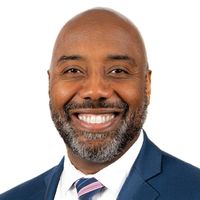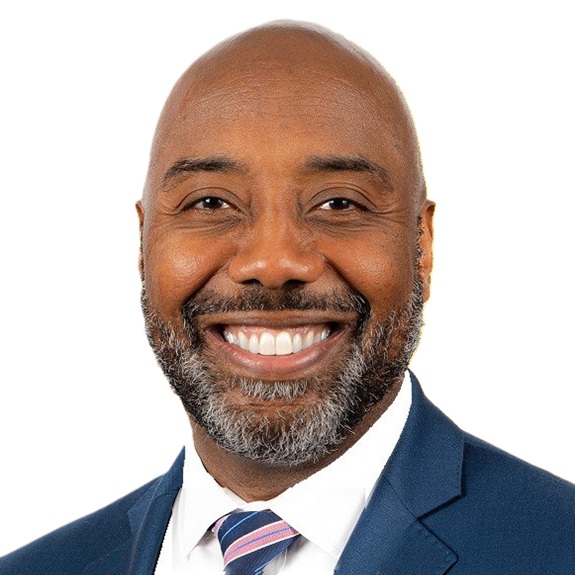How to Capitalize on Self-Directed Brokerage Accounts
The wider array of investment choices in SDBAs could help a savvy investor grow their nest egg faster than they could with a traditional 401(k) retirement plan.


Profit and prosper with the best of Kiplinger's advice on investing, taxes, retirement, personal finance and much more. Delivered daily. Enter your email in the box and click Sign Me Up.
You are now subscribed
Your newsletter sign-up was successful
Want to add more newsletters?

Delivered daily
Kiplinger Today
Profit and prosper with the best of Kiplinger's advice on investing, taxes, retirement, personal finance and much more delivered daily. Smart money moves start here.

Sent five days a week
Kiplinger A Step Ahead
Get practical help to make better financial decisions in your everyday life, from spending to savings on top deals.

Delivered daily
Kiplinger Closing Bell
Get today's biggest financial and investing headlines delivered to your inbox every day the U.S. stock market is open.

Sent twice a week
Kiplinger Adviser Intel
Financial pros across the country share best practices and fresh tactics to preserve and grow your wealth.

Delivered weekly
Kiplinger Tax Tips
Trim your federal and state tax bills with practical tax-planning and tax-cutting strategies.

Sent twice a week
Kiplinger Retirement Tips
Your twice-a-week guide to planning and enjoying a financially secure and richly rewarding retirement

Sent bimonthly.
Kiplinger Adviser Angle
Insights for advisers, wealth managers and other financial professionals.

Sent twice a week
Kiplinger Investing Weekly
Your twice-a-week roundup of promising stocks, funds, companies and industries you should consider, ones you should avoid, and why.

Sent weekly for six weeks
Kiplinger Invest for Retirement
Your step-by-step six-part series on how to invest for retirement, from devising a successful strategy to exactly which investments to choose.
People close to retirement age who want control over their investments beyond their traditional 401(k) accounts tend to believe their options are limited. The conventional reasoning goes that they must either qualify for limited in-service distribution options (such as hardship withdrawals), be eligible for the rule of 55, or simply wait until they’re age 59½ to move the assets in their retirement account.
Thankfully, there’s another option: self-directed brokerage accounts (SDBAs), also known as brokerage sleeves in 401(k) plans. Yet research suggests that while many U.S. employers offer brokerage sleeves in their 401(k) accounts, few employees actually use them.
One of the advantages of using SDBAs? They empower a financial professional to help you reallocate your portfolio investments. The wider array of investment choices could help savvy investors grow their nest eggs faster than they might with a traditional company-organized plan. That flexibility can be especially important as you near the end of your working life.
From just $107.88 $24.99 for Kiplinger Personal Finance
Become a smarter, better informed investor. Subscribe from just $107.88 $24.99, plus get up to 4 Special Issues

Sign up for Kiplinger’s Free Newsletters
Profit and prosper with the best of expert advice on investing, taxes, retirement, personal finance and more - straight to your e-mail.
Profit and prosper with the best of expert advice - straight to your e-mail.
Here are the benefits of working with a financial professional to utilize an SDBA in your workplace retirement plan — and how doing so may help in seeking to pave the way to a longer-lasting, more secure retirement.
1. Personalized advice and a holistic approach.
Some financial professionals treat retirement plans as static investment vehicles, working around them to help you achieve your financial goals. Group retirement plans offered by industry heavyweights all provide basic financial advice in the form of a 1-800 phone number. Those calls go to a desk at a call center, where a registered and licensed representative can deliver a few rules of thumb to guide your allocations.
But with an SDBA, a financial professional can get an inside look at your retirement investments and help you align them with your current financial situation. When the markets are performing well, the financial professional can also provide guidance that’s timely and tailored to your long-term financial goals.
Most important, an SDBA will enable your regular financial professional — who likely has a deep understanding of your insurance policies, education planning, road map to retirement and more — to have an investment discussion based on who you are — your dreams and what you’re looking to accomplish in retirement.
2. An opportunity to move away from conservative financial strategies.
If your assets are in a target date fund, which seeks to maximize return potential by a specific date, they are likely transitioning toward fixed income investments (like bonds) as you approach retirement. The problem? This approach may be too risk-averse, depending on your own stated tolerance for risk.
Near-retirees should be managing their wealth not just up to their retirement date, but through retirement, into their final years. Even target date funds that evolve through retirement may not necessarily extend that glide path into your 80s. And let’s face it: Many don’t plan to have a 15-year retirement.
Increased longevity only raises the stakes. Baby Boomers are living longer than previous generations and, in turn, need an extended financial runway in retirement. Today, 65-year-olds can expect to live at least another 20 years and should realistically have enough funds to cover 35 years of retirement. SDBAs give you the opportunity to move your investments into a customized portfolio with an amount of equity exposure that could help position your portfolio to outperform inflation over a longer time horizon.
3. Greater upside potential.
A financial adviser can help you avoid making investment decisions driven by overconfidence and negative emotions, which are more commonplace during the highs and lows of the market. In fact, one study found that 40% of the value a financial adviser provides is actually emotional — bolstering investor confidence and satisfaction with the choices they’ve made. In general, financial professionals have the knowledge and experience to help you allocate your assets wisely, be it through charitable-giving strategies, estate planning strategies or business-continuation planning.
What’s more, gains realized in a brokerage sleeve or SDBA are taxed the same as those in a standard retirement account. That could mean a bigger nest egg in your golden years.
A caveat: SDBAs often have restrictions on the amount that can be invested through a brokerage sleeve. Nineteen percent of plan sponsors with brokerage sleeves, for instance, limit participants from moving more than 50% of their 401(k) balance into a brokerage sleeve.
While SDBAs may have certain limitations (such as caps on how much can be moved into the SDBA), the benefits — especially when paired with the guidance of a financial professional — can help pave the way to a secure and fulfilling retirement.
This article, which has been obtained from an outside source and is provided as a courtesy by Stephen B. Dunbar III, JD, CLU, Executive Vice President of the Georgia Alabama Gulf Coast Branch of Equitable Advisors, LLC, does not offer or constitute, and should not be relied upon, as financial, investment, tax, legal advice. Your unique needs, goals and circumstances require the individualized attention of your own tax, legal, and financial professionals whose advice and services will prevail over any information provided in this article. Equitable Advisors, LLC and its affiliates do not provide tax or legal advice or services, nor do they endorse, approve, or make any representations as to the accuracy, completeness, or appropriateness of any part of any content linked to from this article. It is not possible to invest directly in an index. Stephen B. Dunbar III offers securities through Equitable Advisors, LLC (NY, NY 212-314-4600), member FINRA, SIPC (Equitable Financial Advisors in MI & TN) and offers annuity and insurance products through Equitable Network, LLC. Financial Professionals may transact business and/or respond to inquiries only in state(s) in which they are properly qualified. GE-6483452.1(04/24)(exp.04/26)
Related Content
- Can I Hire a Financial Adviser to Manage My 401(k)?
- Early 401(k) Withdrawals: Benefits, Risks and Alternatives
- What to Do When You Have More Retirement Income Than You Need
- Financial Fasting Can Trim the Fat From Your Spending
- Six Reasons to Avoid a Self-Directed IRA
Profit and prosper with the best of Kiplinger's advice on investing, taxes, retirement, personal finance and much more. Delivered daily. Enter your email in the box and click Sign Me Up.

Stephen Dunbar, Executive Vice President of Equitable Advisors’ Georgia, Alabama, Gulf Coast Branch, has built a thriving financial services practice where he empowers others to make informed financial decisions and take charge of their future. Dunbar oversees a territory that includes Georgia, Alabama and Florida. He is also committed to the growth and success of more than 70 financial advisers. He is passionate about helping people align their finances with their values, improve financial decision-making and decrease financial stress to build the legacy they want for future generations.
-
 Dow Adds 1,206 Points to Top 50,000: Stock Market Today
Dow Adds 1,206 Points to Top 50,000: Stock Market TodayThe S&P 500 and Nasdaq also had strong finishes to a volatile week, with beaten-down tech stocks outperforming.
-
 Ask the Tax Editor: Federal Income Tax Deductions
Ask the Tax Editor: Federal Income Tax DeductionsAsk the Editor In this week's Ask the Editor Q&A, Joy Taylor answers questions on federal income tax deductions
-
 States With No-Fault Car Insurance Laws (and How No-Fault Car Insurance Works)
States With No-Fault Car Insurance Laws (and How No-Fault Car Insurance Works)A breakdown of the confusing rules around no-fault car insurance in every state where it exists.
-
 For the 2% Club, the Guardrails Approach and the 4% Rule Do Not Work: Here's What Works Instead
For the 2% Club, the Guardrails Approach and the 4% Rule Do Not Work: Here's What Works InsteadFor retirees with a pension, traditional withdrawal rules could be too restrictive. You need a tailored income plan that is much more flexible and realistic.
-
 Retiring Next Year? Now Is the Time to Start Designing What Your Retirement Will Look Like
Retiring Next Year? Now Is the Time to Start Designing What Your Retirement Will Look LikeThis is when you should be shifting your focus from growing your portfolio to designing an income and tax strategy that aligns your resources with your purpose.
-
 I'm a Financial Planner: This Layered Approach for Your Retirement Money Can Help Lower Your Stress
I'm a Financial Planner: This Layered Approach for Your Retirement Money Can Help Lower Your StressTo be confident about retirement, consider building a safety net by dividing assets into distinct layers and establishing a regular review process. Here's how.
-
 The 4 Estate Planning Documents Every High-Net-Worth Family Needs (Not Just a Will)
The 4 Estate Planning Documents Every High-Net-Worth Family Needs (Not Just a Will)The key to successful estate planning for HNW families isn't just drafting these four documents, but ensuring they're current and immediately accessible.
-
 Love and Legacy: What Couples Rarely Talk About (But Should)
Love and Legacy: What Couples Rarely Talk About (But Should)Couples who talk openly about finances, including estate planning, are more likely to head into retirement joyfully. How can you get the conversation going?
-
 How to Get the Fair Value for Your Shares When You Are in the Minority Vote on a Sale of Substantially All Corporate Assets
How to Get the Fair Value for Your Shares When You Are in the Minority Vote on a Sale of Substantially All Corporate AssetsWhen a sale of substantially all corporate assets is approved by majority vote, shareholders on the losing side of the vote should understand their rights.
-
 How to Add a Pet Trust to Your Estate Plan: Don't Leave Your Best Friend to Chance
How to Add a Pet Trust to Your Estate Plan: Don't Leave Your Best Friend to ChanceAdding a pet trust to your estate plan can ensure your pets are properly looked after when you're no longer able to care for them. This is how to go about it.
-
 Want to Avoid Leaving Chaos in Your Wake? Don't Leave Behind an Outdated Estate Plan
Want to Avoid Leaving Chaos in Your Wake? Don't Leave Behind an Outdated Estate PlanAn outdated or incomplete estate plan could cause confusion for those handling your affairs at a difficult time. This guide highlights what to update and when.